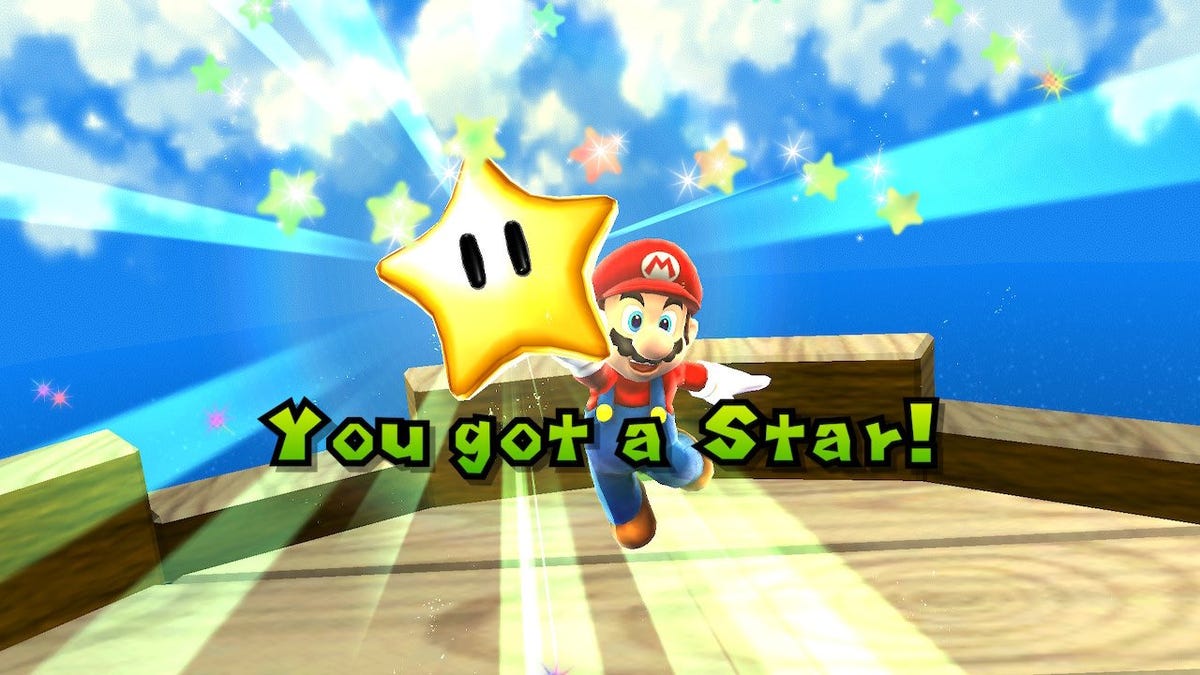 Why You Can Trust CNET
Why You Can Trust CNET 15 Years Ago, Super Mario Galaxy Kicked Off a New Golden Age for the Series
Mario's dazzling Wii adventure changed the course of the franchise.

Mario has been such an omnipresent figure that it's difficult to imagine video games without him, but even the iconic plumber hit a rough patch in the early 2000s, during the turbulent days of the GameCube. His sole platforming adventure for the system, Super Mario Sunshine, would end up being a critical and commercial disappointment by series standards, ultimately failing to improve console sales. With even Mario unable to reverse the GameCube's fortunes, it seemed as though the plumber's best days were behind him – until he made a spectacular rebound on Nintendo's next console.
Five years after Super Mario Sunshine, Mario returned in a cosmic new adventure: Super Mario Galaxy, a bold and imaginative platformer that would kickstart a new golden age for the storied mascot. Leaving behind the candy-colored hills and plains of the Mushroom Kingdom, Super Mario Galaxy flung the intrepid plumber across the very cosmos, breathing new life into the series with its wildly creative level designs and sheer playfulness.
From the outset, Galaxy pares back many of the excesses that marred its predecessor, resulting in a much more tightly orchestrated adventure. Gone are the sandbox stages that dominated Super Mario Sunshine; instead, Galaxy whisks players through a series of decidedly linear challenges, evoking the straightforward platforming of Mario's earliest adventures. Though some stages offer a degree of exploration, Mario seldom has time to catch his breath in Galaxy; nearly every challenge is a relentless forward race to the goal, with myriad surprises, distractions and mini-objectives to overcome en route to that destination.
What gives Galaxy its enduring freshness is its variety. Each stage is packed with a dizzying array of ideas. Mario could scamper around a small planetoid chasing collectables, slingshot himself between floating chunks of rock using rubbery globs of web, and navigate platforms that assemble themselves out of space debris – all within the span of a single level. Moreover, the game world unfurls at a much brisker pace than other Mario titles. New stages open up after every few stars collected, keeping the adventure consistently engaging and surprising.
Players and critics responded positively to Galaxy's hyperactive daringness. The game would go on to sell almost 13 million copies on Wii, making it the series' best-selling 3D installment at the time. But its legacy is its playful approach to level design, which would serve as the template for all 3D Mario games moving forward.
Super Mario Galaxy 2, released three years later, further built on this foundation with a wealth of new gameplay ideas. Super Mario 3D Land and its sequel, Super Mario 3D World, married Galaxy's freewheeling spirit with more traditional level designs, blurring the line between the series' 2D and 3D lineages. Even Super Mario Odyssey, which embraced the open sandbox style that Mario 64 and Sunshine pioneered, interspersed its sprawling stages with a bevy of linear challenges that would feel right at home in either Galaxy game.
Each successive Mario adventure was a critical and commercial success, moving multiple millions of copies and earning near-universal praise from fans and reviewers – a far cry from the tepid reception Sunshine received back in 2002. Even now, 15 years on, Super Mario Galaxy holds up as one of the plumber's most dazzling adventures. Though other Mario games may have since leapfrogged it, Galaxy will always be responsible for kicking off a veritable renaissance for the series.